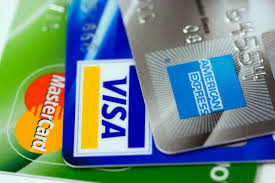Your Three Step Plan to Not Go Broke
This is a guest post by Michael Jones of Beacon Financial Training. His views don’t necessarily reflect the views of Academy Success, but he does have some pretty good advice 🙂
—
Being broke at the end of the month – almost everyone knows the feeling. You get paid, and immediately go out and buy all the things you’ve been longing for since your bank account dried up. A new jacket or pair of shoes. The latest video games. Tickets to that upcoming concert.
Many people today have a ‘spend now, worry later’ approach to their personal finances. It’s a sort of detrimental ‘you only live once’ attitude to spending.
With a little thought and preparation, you won’t have to be tightening your belt in the week before payday – turning down opportunities to socialize with friends or family, conjuring lame excuses to miss that hot date, and eating nothing but Ramen noodles for seven days straight.
It’s all about organization, discipline, honesty, and, above all, responsibility.
Get Organized
First of all, you need to organize your finances, and you don’t have to be a regular Captain Clipboard to do it. It’s a matter of splitting your money, your monthly salary, into three components.
First, there are your standard financial obligations. This includes your phone bill, your gym membership, utility bills in your home – the sort of expenses that, if not the same every month, you can predict to some degree of accuracy.
Second, there are the things you have to buy or pay for that can tax your wallet to varying degrees every month. This mostly includes the money you spend on food and other household necessities – in other words, the contents of your shopping cart.
Third, you have your leisure spends, the money you set aside for personal pursuits – basically, the things you really want but don’t necessarily need.
To begin, you should make a basic chart listing all of your outgoings that fall into the first category. With these strung in a coherent manner, the collective cost added up, what you’re left with is your basic spending allowance for the month.
With the money remaining – it could range from anywhere between a fifth to half of your total monthly earnings, depending on how much you earn and how much your standard outgoings come to – you need to set some aside for buying in your groceries, cleaning products, shampoos, razors, and anything else you think you’ll require.
Look at your past shopping receipts to get an idea of how much you’ll spend every week. If you haven’t kept any, don’t panic; just make a shopping trip and keep a tabs on how much you’re spending. Use that as an average for the overall month.
What you’re left with can be spent in your personal time. Excursions with friends, gifts for loved ones, or the latest comic or video game. How do you keep yourself from spending it all in one go?
Ninja Discipline
When your conscience tells you, ‘Don’t buy that, it’ll leave you with hardly any money later in the month’, it’s normal (well, almost) to reply, ‘Easy for you to say!’
However, you have to be honest with yourself. Of course, it’s fine to splash out a little if you know you’ll be careful with spends the following week to make up for it, but will you stick to your guns and cut back?
The easiest way of allocating your leisure spends for the month is to simply split the total sum between the weeks until payday.
That way, if you know exactly how much room you have for leisure spending on a week-to-week basis, you’ll know exactly how much you’ll have to cut back the following week – if you went over your weekly allowance – to stay on track with your budget.
Time to Grow Up
The majority of us can’t simply rely on our parents to bail us out every time we overspend, leaving only pocket shrapnel for the remainder of the month.
If you’re being an adult about everything else – your career, your relationship, your approach to DIY – extend that attitude to your finances as well.




